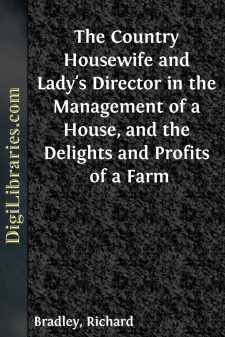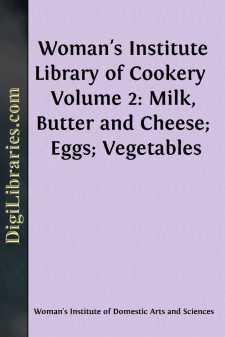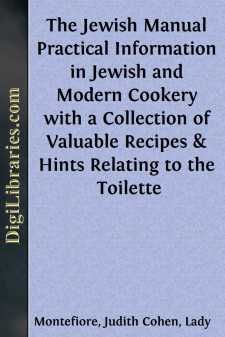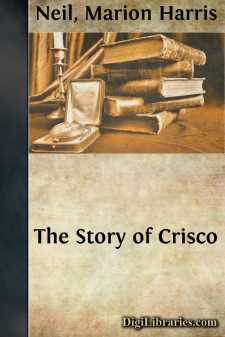Cooking
- General
- History 1
- Reference 10
- Regional & Ethnic 3
- Vegetarian 10
General Books
Sort by:
Foreword No apologies are offered for this book. In fact, we rather like it. Many years have been spent in gathering this information, and naught is written in malice, nor through favoritism, our expressions of opinion being unbiased by favor or compensation. We have made our own investigation and given our own ideas. That our opinion does not coincide with that of others does not concern us in the...
more...
by:
Richard Bradley
The Reason which induces me to address the following Piece to the Fair Sex, is, because the principal Matters contained in it are within the Liberty of their Province. The Art of Oeconomy is divided, as Xenophon tells us, between the Men and the Women; the Men have the most dangerous and laborious Share of it in the Fields, and without doors, and the Women have the Care and Management of every Business...
more...
MILK IN THE DIET 1. As is well understood, milk is the liquid that is secreted by the mammary glands of female mammals for the nourishment of their young. The word milk as it is commonly used, however, refers to cow's milk, because such milk is employed to a greater extent as human food than the milk from any other animal. Cow's milk in its perfectly fresh raw state is a yellowish-white,...
more...
by:
Catherine Owen
INTRODUCTION. By choice cookery is meant exactly what the words imply. There will be no attempt to teach family or inexpensive cooking, those branches of domestic economy having been so excellently treated by capable hands already. It may be said en passant, however, that even choice cooking is not necessarily expensive. Many dishes cost little for the materials, but owe their daintiness and...
more...
by:
Eliza Leslie
SOUPS. GENERAL REMARKS. Always use soft water for making soup, and be careful to proportion the quantity of water to that of the meat. Somewhat less than a quart of water to a pound of meat, is a good rule for common soups. Rich soups, intended for company, may have a still smaller allowance of water. Soup should always be made entirely of fresh meat that has not been previously cooked. An exception to...
more...
CHAPTER I. Soups. STOCK OR CONSOMMÉ. This is the basis of all kinds of soup and sauces. Shin of beef or ox-cheek make excellent stock, although good gravy-beef is sometimes preferred; the bones should always be broken, and the meat cut up, as the juices are better extracted; it is advisable to put on, at first, but very little water, and to add more when the first quantity is nearly dried up. The time...
more...
INTRODUCTION The word "fat" is one of the most interesting in food chemistry. It is the great energy producer. John C. Olsen, A.M., Ph.D., in his book, "Pure Food," states that fats furnish half the total energy obtained by human beings from their food. The three primary, solid cooking fats today are: There are numbers of substitutes for these, such as butterine, oleomargarine and...
more...
MEATS AND POULTRY. To Boil Fresh Meat. In boiling fresh meat, care is necessary to have the water boiling all the time it is in the pot; if the pot is not well scummed, the appearance of the meat will be spoiled. Mutton and beef are preferred, by some, a little rare; but pork and veal should always be well done. A round of beef that is stuffed, will take more than three hours to boil, and if not...
more...
by:
Alice Bradley
INTRODUCTION Meals of many courses are neither practical nor popular with the modern hostess. For a company luncheon or supper it is not necessary to serve more than a hot dish, a salad, a biscuit or sandwich, a dessert and a beverage. A first course and a relish may be provided if desired. SUNDAY NIGHT SUPPERS The following menus were arranged especially as Sunday night suppers, but they are equally...
more...
by:
Mary A. Wilson
MRS. WILSON'S COOK BOOK Bread, the staff of life, must be palatable and good if we are to be satisfied with it when we eat. Can you think of anything that will spoil a meal more quickly than poor, over moist, doughy or heavy bread? Bread may truly be called the staff of life, as it will maintain life longer than any other single food. Yet many women think bread-making is a simple task; that the...
more...











